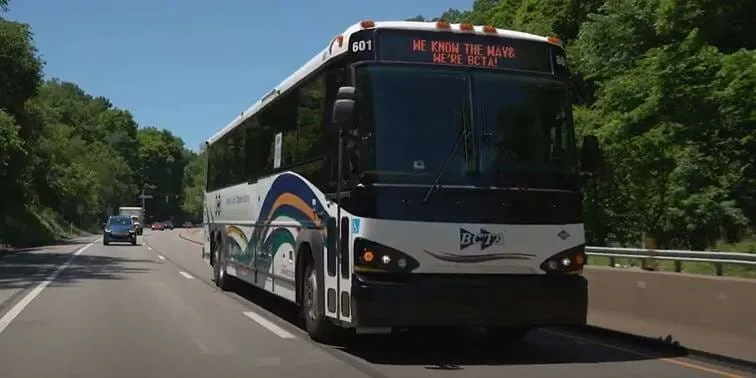Arriva says TomTom’s telematics system will provide bus drivers with feedback around braking, acceleration and idling to cut carbon dioxide (CO2) emissions by up to 72,000 tonnes a year.
Thomas Schmidt, managing director of TomTom, says: “Our fleet management solution, Webfleet, gives Arriva powerful insights into areas for improvement across its extensive network. For instance, it highlights inefficiencies affecting the amount of fuel usage in a day.”
Jo Humphries, Arriva’s group transformation director, says the company’s 32,000 drivers will be supported with regular training, allowing them to provide “safer and more comfortable journeys for passengers and reduce fuel usage to deliver substantive reductions in CO2 emissions”.
Aside from the UK, the technology will be installed in buses in Croatia, Czech Republic, Italy, Hungary, Poland, Slovakia, Slovenia, Spain and the Netherlands.
Arriva joins forces with TomTom to slash bus CO2
Arriva is working with TomTom Telematics with the aim of reducing carbon dioxide (CO2) emissions from 15,000 buses across the UK and nine European countries.
Arriva says TomTom’s telematics system will provide bus drivers with feedback around braking, acceleration and idling to cut carbon dioxide (CO2) emissions by up to 72,000 tonnes a year.
Thomas Schmidt, managing director of TomTom, says: “Our fleet management solution, Webfleet, gives Arriva powerful insights into areas for improvement across its ex
July 5, 2019
Read time: 2 mins








